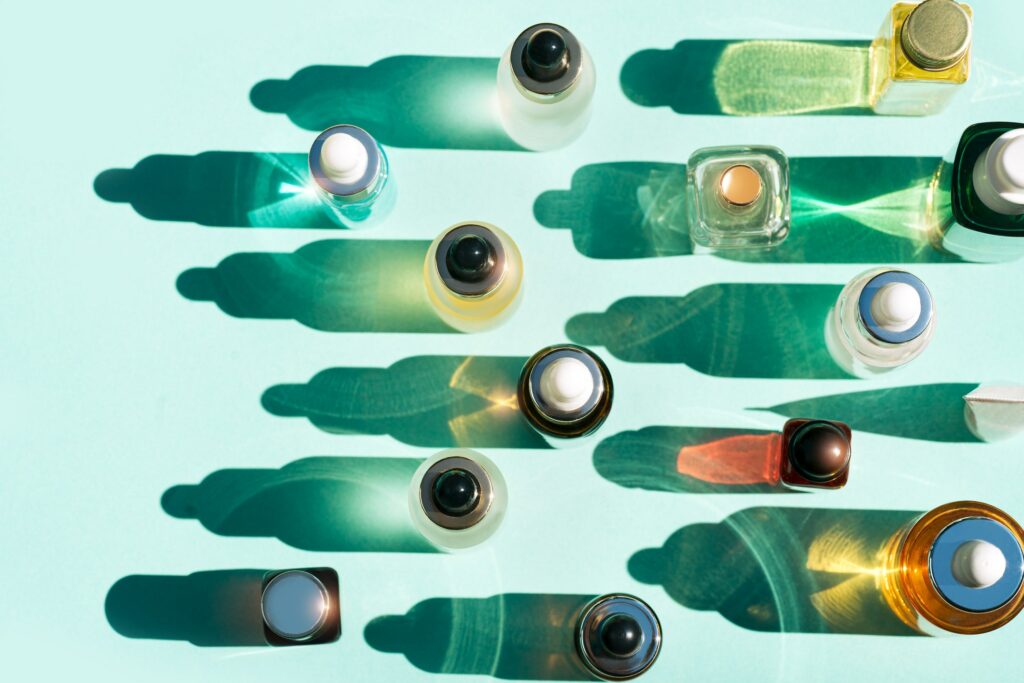So why does “medical-grade” deserve to be put on blast more than other unchecked claims? It aims to lure in consumers with a bit more unearned credibility, according to the experts we spoke with. “There’s this sort of prestige factor associated with [“medical-grade” skin care products], but it doesn’t mean that they’re naturally better or superior to products that you could buy at Sephora or Ulta or CVS,” Dr. Idriss says.
Dr. Wong agrees: “It makes products sound like they are somehow legally in a different category and that they’re superior, when that’s not the case,” she says. “There’s this idea that there’s a lot more research behind them and that they’re well-tested. In reality, it’s pretty much a crapshoot.”
Rather than relying on “medical-grade” claims, look for evidence of legit research.
Lack of regulation aside, you don’t necessarily need to avoid including “medical-grade” skin care in your routine—not all of the brands that promote their products this way are “complete bullshit,” as Dr. Idriss puts it. She often recommends formulas from brands like MBR Skincare and Environ, for example, which are positioned as “medical” quality, and I’d be hard-pressed to think of a dermatologist who hasn’t recommended Skinceuticals CE Ferulic as a top-tier antioxidant serum (despite being super stinky). Instead of relying on tricky marketing terms, she explains, your best bet is to do your homework on the science behind a particularly pricey product, whether it claims to be “medical-grade” or not.
A lot of brands actually do put a ton of research into their formulations, invest in clinical trials, and even go the extra mile and get these results published in peer-reviewed journals, meaning independent experts have signed off on their legitimacy. And, thanks to the ease of sharing information online, companies can add the results of their research to their websites.
“Look for clinical studies performed on the product,” Michael Cameron, MD, FAAD, assistant clinical professor in the department of dermatology at Mount Sinai and founder of Cameron Dermatology in New York City, tells SELF. “Brands often fund these studies, but they’re acceptable as long as there is a placebo group or a comparator group [that tested a similar product], and there’s an unbiased third party involved in conducting the study and assessing the product’s efficacy.” (The company will often specify “third-party” testing if that’s the case—like here and here.)
Another sign of a legit study: It was “double-blind,” meaning that neither the participants nor the researchers knew which product was being tested until the trial was over. (This double-blind research on a 2% salicylic acid cleanser funded by Johnson & Johnson is a good example, as is this Neutrogena study on a 0.1% retinol cream.) If a company has this information on its site, it will often be listed under a dedicated section (titled something like “the science” or “clinical studies”) or on an individual product’s page.
In addition to looking into studies on specific products, you can also do some digging into the evidence supporting certain active ingredients. (That happens to be one of our areas of expertise, so we’re happy to help you learn about the research on vitamin C, retinoids like tretinoin, glycolic acid, and niacinamide, among lots of other skin care ingredients.)
For truly medical-grade results, seek out a medical professional.
While doing a little research of your own may help point you toward better-quality products than you’d find by depending on marketing claims alone, the best way to create an effective skin care routine is to see a dermatologist who can offer personalized advice, Dr. Cameron says, especially if you’re dealing with a medical issue like acne, skin rashes, itchy or painful bumps, the list goes on. We know—it’s easy for us to say, and not always simple to do, since dermatologist visits can be pricey and not always covered by insurance (if you have insurance). Another complication: There’s a shortage of providers, Dr. Idriss adds.
While that may make it tougher for you to see a dermatologist where and when you want, there are ways to find one you love, and we can confidently say it’s the most reliable way to get skin care advice so good that it’s–dare we say–medical-grade.
Related:
The 5 Skin Care Products a Dermatologist Buys at Trader Joe’sHow to Hydrate Your Painfully Dry Skin When You’re Just Starting RetinolDo Biotin Supplements Actually Do Anything for Hair Loss?
>>> Read full article>>>
Copyright for syndicated content belongs to the linked Source : Self.com – https://www.self.com/story/medical-grade-skin-care-truth
